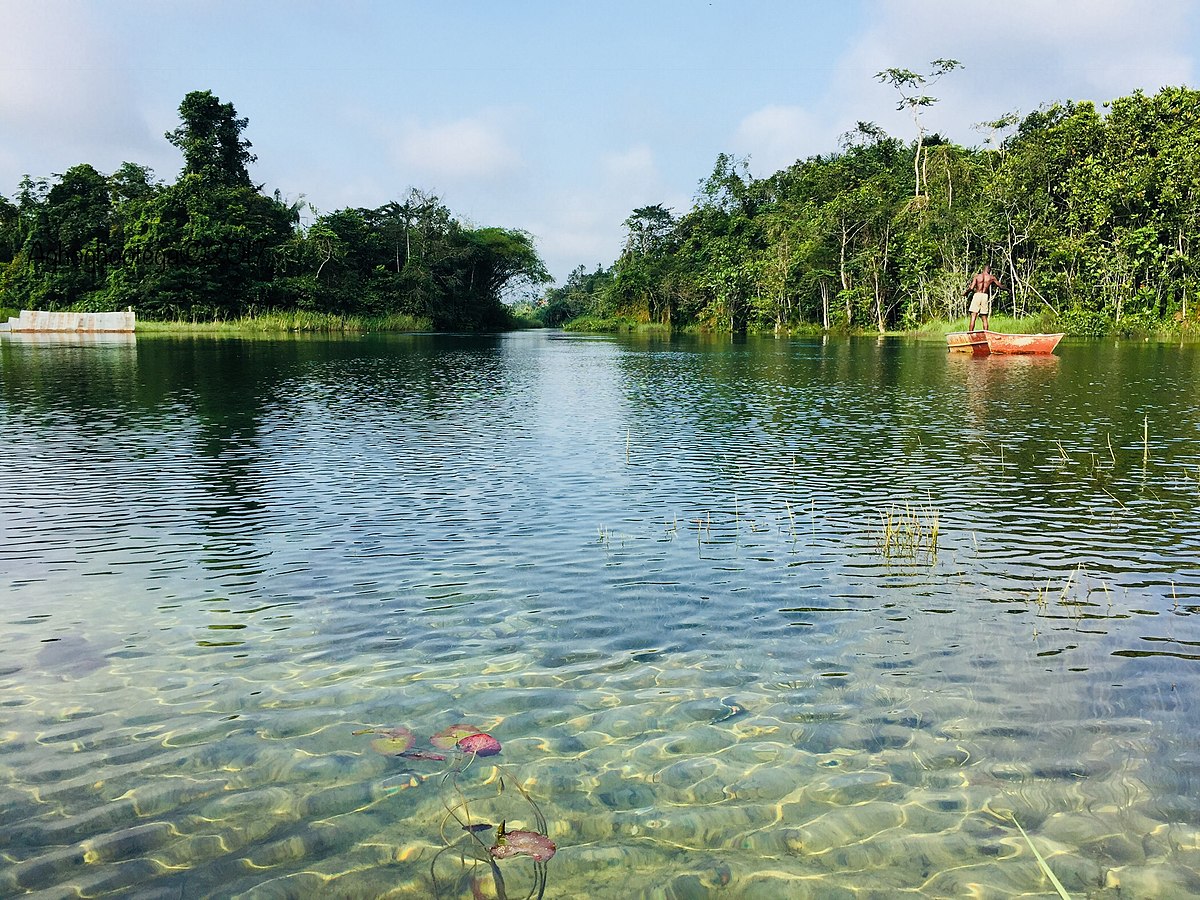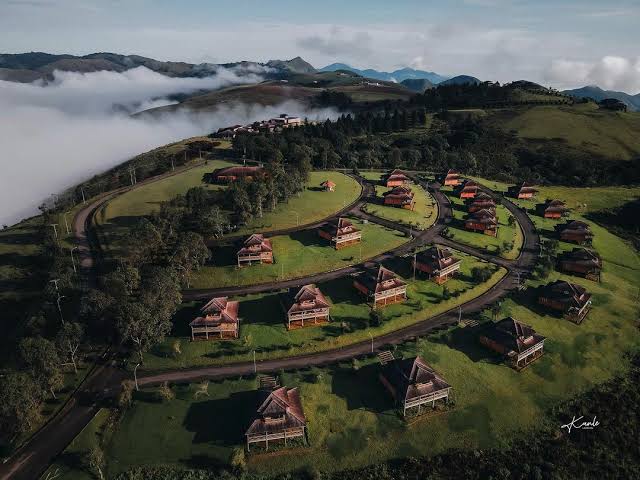One of the world’s most amazing ecosystems is found in southern Nigeria, in the Niger Delta region. The area, which is well-known for its extensive waterway system, verdant mangroves, and lively towns, provides an experience unlike any other. Discovering the waterways of the Niger Delta is more than just navigating rivers and creeks; it’s an adventure through biodiversity, history, culture, and the tenacity of a people who prosper in the face of both socioeconomic hardship and scenic beauty.
The geology, culture, wildlife, important locations, and advice for an amazing experience will all be covered in this article as we explore the many facets of a riverine journey in the Niger Delta.
Geography of Niger Delta Waterways
The Niger Delta is one of the biggest deltas in the world, covering an area of around 70,000 square kilometers. Rivers, Bayelsa, Delta, Akwa Ibom, Cross River, Ondo, Edo, Imo, and Abia are among its nine states. The distributaries, creeks, lagoons, and marshes of the Niger River are all part of this intricate waterway system, which ultimately empties into the Atlantic Ocean.
The complex network of estuaries, freshwater wetlands, and mangroves is at its core. The people that reside in the area depend on these rivers for their livelihoods, which include farming, fishing, and trading, in addition to being essential for transportation.
Why Explore the Niger Delta Waterways
1. Rich Biodiversity: The Niger Delta is home to a wide variety of plants and animals, including endangered species like the African manatee and the Niger Delta red colobus monkey. Fish, crabs, and prawns use the mangroves as nesting grounds. The sight of egrets, herons, and kingfishers dotted over the rivers will captivate birdwatchers.
2. Cultural Immersion: The Ijaw, Urhobo, Itsekiri, and Ibibio are among the many ethnic groups that have merged in the Delta. You can get closer to their unique customs, music, dances, and festivals by exploring the waterways.
3. Scenic Beauty: The vast body of water, dotted with vibrant communities and surrounded by thick mangroves, is breathtaking. The views along the rivers of the Delta are stunning at sunrise or sunset.
Key Destinations Along the Niger Delta Waterway
1. Port-Harcourt: The Gateway to the Delta
Known as the “Garden City”, Port Harcourt is the commercial hub of the Niger Delta and a starting point for many riverine adventures. From here, you can embark on boat trips to nearby communities and mangroves. Key attractions include the Bonny River and the waterfront markets where you can experience the vibrant trade culture.
Also experience the Ijaw, Ikwerre, and other ethnic traditions through local festivals, dances, and cuisines.
There are also nearby reserves like Finima Nature Park, which provides opportunities for eco-tourism and wildlife observation.
2. Yenagoa and the Brass River
Yenagoa, the capital to Bayelsa state, is a serene town offering access to the Brass River. A trip down this river takes you through pristine mangrove forest and quaint fishing villages. The Brass River is also a prime spot for spotting dolphins and sea turtles.
Engaging with the Ijaws rich heritage through festivals, music and local crafts, including their renowned canoe making tradition is a good way to experience Yenagoa.
Discovering the region’s unique biodiversity, including exotic birds and marine life, in its pristine natural habitats.
Yenagoa’s peaceful atmosphere and proximity to nature makes it a perfect spot for those seeking a serene escape from urban life.
3. Delta State’s Creeks and Warri
Warri, a bustling city in Delta State, serves as a launching pad for exploring the Delta’s Creeks. The Forcados and Escravos Rivers are key highlights, offering stunning views of mangroves and local fishing activities. Warri is also a cultural hotspot, with its blend of traditional Urhobo, Itsekiri, and Ijaw heritage.
The Creeks are home to diverse bird species and aquatic life offering excellent opportunities for nature lovers and photographers.
After exploring the waterways, enjoy Warri’s vibrant markets, local delicacies like Banga soup, and its lively nightlife.
4. Andoni and Opobo Rivers
The Andoni River is a haven for birdwatchers and nature lovers, with its tranquil waters and rich biodiversity. Opobo, an ancient kingdom along the Opobo River, offers a glimpse into the history of King Jaja of Opobo and the region’s involvement in the transatlantic slave trade.
5. Calabar and Cross River Estuary
Calabar, known for its hospitality and cultural festivals, is another must-visit destination. The Cross River Estuary is a scenic waterway teeming with life. You can explore the nearby mangrove swamps and visit the Calabar Slave Museum for historical context.
The Culture of the Riverine Communities
The people of the Niger Delta are deeply connected to the waterways. Traditional fishing techniques, boat-making, and mangrove harvesting are integral to their daily lives. Festivals like the New Yam Festival and boat regattas showcase their vibrant culture.
Storytelling is another cherished tradition, with tales often centered around the rivers and their mythical significance. For example, water spirits known as mami wata are believed to inhabit these waterways, influencing the lives of those who traverse them.
Local cuisine is a highlight of any visit. Freshly caught fish, prawns, and crabs are staples, often prepared with spices and served with starch or garri. Popular dishes include Banga soup, pepper soup, and seafood okra.
Biodiversity and Conservation
The Niger Delta’s biodiversity is unparalleled but under threat from pollution, deforestation, and climate change. Efforts are underway to protect key habitats, such as the Finima Nature Park and the Apoi Creek Forest Reserve.
Visitors can contribute to conservation by choosing eco-friendly tour operators, supporting local communities, and respecting the delicate ecosystems during their travels.
Activities to Enjoy Along the Waterways
1. Boat Cruises: Glide through the serene waters on a guided boat tour. Many operators offer day trips and overnight cruises, allowing you to explore remote creeks and mangroves.
2. Fishing Expeditions: Join local fishermen to experience traditional fishing methods. This activity not only provides insight into their way of life but also offers a chance to catch your own seafood.
3. Birdwatching: With its abundance of bird species, the Niger Delta is a birdwatcher’s paradise. Bring your binoculars for a chance to spot rare and migratory birds.
4. Cultural Tours:
Visit riverine villages to learn about their customs, music, and crafts. Don’t miss the opportunity to watch a traditional dance performance or participate in a festival.
5. Photography:
The Niger Delta’s landscapes are a dream for photographers. Capture the interplay of light and water, the vibrant life in fishing villages, and the region’s stunning wildlife.
Challenges of Exploring the Niger Delta Waterways
While the Niger Delta offers unparalleled beauty, it also poses challenges for travelers:
1. Environmental Pollution:
Oil spills and industrial waste have affected parts of the region, impacting water quality and biodiversity. Travelers should opt for areas that are less affected and support initiatives for sustainable tourism.
2. Accessibility:
Many riverine areas lack proper infrastructure, making travel challenging. Guided tours are recommended for navigating these remote locations.
3. Security Concerns:
The Niger Delta has experienced unrest in the past. While many areas are safe for tourism, it’s important to stay informed and follow the advice of local guides and authorities.
Tips for an Unforgettable Adventure
1. Plan Ahead: Research your destinations and book tours with reputable operators.
2. Travel Light: Pack essentials like sunscreen, insect repellent, waterproof clothing, and a good camera.
3. Respect Local Customs: Show respect for the local communities by dressing modestly and asking permission before taking photographs.
4. Support Local Businesses: Purchase handmade crafts, use local guides, and dine at community-run eateries to support the economy.
5. Be Eco-Conscious: Avoid littering, minimize plastic use, and choose eco-friendly activities.
Exploring the Niger Delta waterways is more than just a riverine adventure; it’s an opportunity to connect with nature, history, and culture in one of the world’s most fascinating regions. Despite its challenges, the Delta’s allure lies in its untamed beauty and the indomitable spirit of its people.
Whether you’re a nature lover, cultural enthusiast, or adventure seeker, the Niger Delta promises an experience that will leave you with lasting memories and a deeper appreciation for Nigeria’s natural and cultural heritage.





Leave a Comment